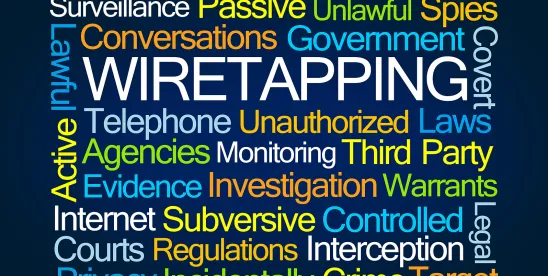In a discovery dispute arising out of a TCPA case in the Eastern District of Michigan, the Court denied the Plaintiff’s motion to compel production of third-party declarations in the possession the Defendant, and motion for leave to take additional third-party depositions after the discovery cutoff date. The Court found that, as Plaintiff was on notice of the declarations, it had the burden to serve proper discovery requests. Additionally, as discovery had been ongoing for two years, the Court found no good cause to extend discovery deadlines.
Background
Plaintiff Brian Lyngaas, a dental practice in Michigan, filed a complaint under the TCPA, alleging that Defendant Solstice Benefits, Inc. (“Solstice”) sent it unsolicited advertisements by fax. Through interrogatory responses served in October 2022, Solstice informed Plaintiff of potential witness Barry Clark of WestFax, Inc. (“WestFax”), and that Government Employees Health Association, Inc. (“GEHA”) and United Concordia Companies, Inc. (“UCCI”) were “persons with knowledge relevant to Solstice’s defenses”. Specifically, Solstice stated that stated that WestFax has knowledge regarding the finalization and transmission of the fax sent to Plaintiff, and that GEHA has knowledge regarding a network access agreement and relationship with Solstice.
The Motions
Plaintiff filed a motion to compel production of third-party declarations in the possession of Solstice and a motion for leave to take additional third-party depositions after the discovery cutoff date. In these motions, Plaintiff claimed that Solstice disclosed for the first time that it had signed declarations from Barry Clark of WestFax and Matthew Bryan of GEHA in its Fifth Supplemental Rule 26(a) disclosure on July 10, 2024. Plaintiff also stated that Solstice served its Sixth Supplemental 26(a) disclosure, disclosing a signed declaration from one more person, on July 22, 2024, which was one day before the close of discovery. Plaintiff claimed that Solstice was “improperly withholding facts and information from discovery”.
In Plaintiff’s motion for leave to take additional third-party depositions, it stated that it served notices of intent to serve subpoenas on ten individuals Solstice revealed in its Fifth Supplemental Rule 26(a) disclosures. Plaintiff had, before the disclosures at issue, deposed six of Solstice’s other employees, one representative witness designated by Solstice, and three expert witnesses Solstice had identified. Plaintiff argued that the three expert depositions should not be counted against the ten-deposition limit, and that its total number of depositions after deposing Clark and Bryan would be nine.
Solstice then filed a motion for a protective order barring Plaintiff’s subpoena, arguing that that the work-product doctrine shields the declarations, and that Plaintiff could have obtained equivalent material because all the declarants were available to Plaintiff since October 2022. It argued that the subpoenas are untimely and violate the discovery cutoff, and that Plaintiff did not seek leave of the Court to extend the cutoff before issuing the subpoenas.
Court’s Analysis
Plaintiff’s Motion to Compel – Denied
The Court did not find it necessary to decide whether the work-product doctrine applies and denied the Plaintiff’s motion to compel. As per Federal Rules of Civil Procedure (“FRCP”) 33 and 34, parties are permitted to serve interrogatories and requests for production of documents on an opposing party, and the latter has thirty days to respond with answers or objections. It is only where a party fails to respond to these requests properly that FRCP 37 allows the requesting party to file a motion to compel. The Court held that since Plaintiff did not serve a proper discovery request for the declarations either prior to the motion or in the motion, it could not move to compel discovery.
Plaintiff’s Motion to take Depositions after Discovery Cutoff – Denied
The Court denied Plaintiff’s motion, finding no good cause to extend the discovery deadlines. The Court held that, as Barry Clark of Westfax, Inc. and Matthew Bryan of GEHA, were both listed in Solstice’s disclosures, Plaintiff learned of the parties at issue in October 2022 and were on notice. The burden was therefore not on Solstice to give the documents.
The Court also held that Plaintiff’s subpoenas were untimely. They were issued on July 19, 2024, requested the two subpoenaed witnesses to appear within 21 days, and instructed the other subpoenaed parties to respond with documents within 14 days. These subpoenas violated the discovery cutoff of July 23, 2024. As per FRCP 16(b)(4), modification of a discovery cutoff may only be granted when there is good cause and with the judge’s consent. Citing Sixth Circuit case law, the Court held that, in the context of requests to extend the discovery deadlines, it considers (1) when the moving party learned of the issue that is the subject of discovery; (2) how the discovery would affect the ruling; (3) the length of the discovery period; (4) whether the moving party was dilatory; and (5) whether the adverse party was responsive to prior discovery requests.
In this case, Plaintiff learned of the parties at issue in October 2022, and had an opportunity to obtain the discovery prior to bringing these motions. The Court also found that the length of discovery period weighed against Plaintiff’s motion to extend the deadlines – discovery here had been ongoing for two years. As a result, Plaintiff had not shown good cause to extend the length of discovery.
Defendant’s Motion for Protective Order – Denied as Moot
As the Plaintiff was not entitled to its requested discovery or an extension of the discovery periods, the Court found that Solstice had no need for a protective order.
While this was a defense win, this order is an important reminder for all litigants – when it comes to discovery, diligence is key. This is especially important in TCPA cases, where third-party declarations and depositions can play a vital role in determining liability. For more on vicarious liability in TCPA cases, check out my recent blog about a fascinating decision out of New Mexico – MIXED BAG: TCPA Defendant RCI, LLC. Wins Some and Loses Some in Motion For Summary Judgement – TCPAWorld.
The order can be accessed here: Lyngaas v. Solstice Benefits, Inc., No. 22-10830 (E.D. Mich. Oct. 4, 2024)




 />i
/>i
